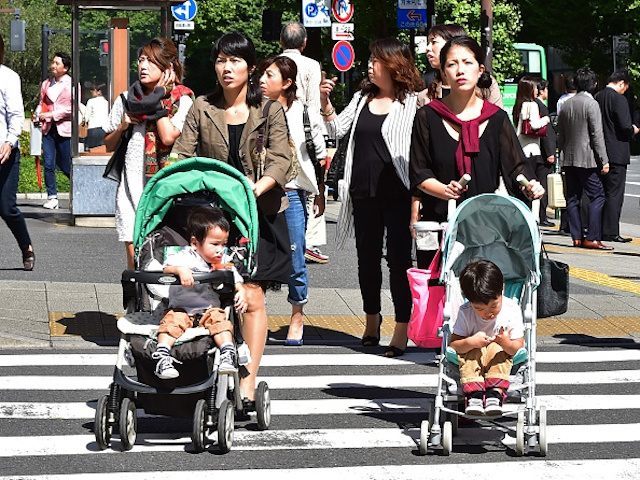Japan’s latest census figures confirm that the population has declined by nearly a million people, the first such decline in nearly a century.
“The country lost 947,345 people – more than the population of San Francisco – between 2010 and 2015,” reports the UK Guardian.
The Japanese population is not just declining, it is aging as well. Having fewer children is pushing the median age upward, in concert with the extended lifespans made possible by modern medicine.
The United Nations estimates that by the end of this century, Japan’s population will have made a breathtaking drop from 127 million today to just 83 million, and 35 percent will be over 65 years old. Some estimates have an even more pronounced tilt toward old age in the Japanese population arriving even sooner.
The Atlantic, which cheekily dubs Japan “The Land of the Falling Son,” notes that sales of adult diapers are projected to exceed the sales of children’s diapers by 2020.
The population is also congealing in urban areas as it declines, with rural provinces declining while people move to the big cities. Perhaps not surprisingly, Fukushima Prefecture saw one of the worst declines, its real estate having become much less attractive after the 2011 nuclear disaster.
The family unit in Japan is dispersing, as the Chicago Tribune notes the number of households hit a record high of 53,403,226, but the average number of people per household fell to a record low of 2.38.
Demographic death spirals become an economic crisis long before they become an existential threat to a culture, as modern societies require a high ration of young workers to older retirees in order to pay for benefits – the built-in drawback to long lifespans. During periods of explosive economic and population growth, promises of social security (including America’s upper-case Social Security program) are made, but when birthrates stagnate and the population ages, those programs become economic train wrecks.
A demographically-driven economic crisis in already heavily-indebted Japan will be felt keenly by its trading partners in the years ahead, including the United States, which is teetering on the verge of its own fiscal earthquake from an aging populace.
The Guardian notes that Japan’s government is well aware of its demographic problems, and has even established a ministry for stabilizing the birthrate, but experts are pessimistic about pulling out of a birthrate collapse of such astounding magnitude. Even Japan’s rather optimistic official birthrate goals fall well short of the level needed to maintain a stable population.
Part of the problem is that people are marrying later in life – a phenomenon observed in the United States as well, and often described as a contributing factor to the current generation’s shifting views on marriage – but in Japan, very few births occur out of wedlock. The Atlantic adds Japan’s reluctance to encourage mass immigration, which has become the primary driver of population growth in countries like the U.S.
There are many great cultural differences between Japan and the West, but they seem to have a similar urge toward demographic decline, as if both have produced generations that lost interest in reproduction.
The implication behind that 2.1 children per adult birthrate is that healthy societies require a large number of couples willing to have more than two children, and that is quite a demand on people with modern concerns – from career tracks and entertaining distractions, to imbibing academic culture that frets about “overpopulation” and regards human beings as a virus. The declining importance of religious values and tradition to any given society seems to be either a cause, or an effect, of demographic decline as well. That is not a surprise, when considering the challenges of raising three or more kids.

COMMENTS
Please let us know if you're having issues with commenting.